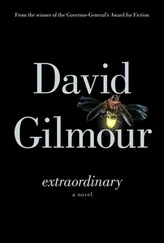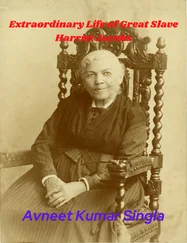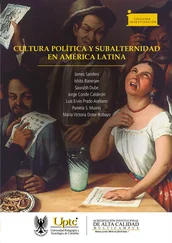The pre-concert jitters manifested themselves most clearly in her stomach, which lurched at the very thought of appearing in front of an audience. She wanted to throw up in the sink. Obsessing only made it worse. It was uncontrollable. She knew, deep down, that some day people would catch on to her — they would discover that she was a fraud and did not possess even the vaguest hint of musical talent. It was certain to happen. It could happen today. Today, she wouldn’t even be able to hide down in the pit but, instead, would be up on stage in full view. On national television. The composer would be there. The entire nation of Hungary would be watching her. It would get made into a multiplatinum album.
The Polaroid and a few of Nanette’s less essential cameras were scattered around the living room. Melanie ran her finger along a row of CD spines and it stopped at some piano music. The Diabelli Variations — Beethoven’s simultaneous tributes to and parodies of his contemporaries. Anything to distract herself from the scene at the salon, from the impending opera. She didn’t even want to think about her violin just yet. She hated that violin sometimes, just like she hated her job. The opera orchestra was just a stepping-stone until she could get up the energy to move back home. She planned to audition for the Boston Symphony one day soon. In the meantime, she slipped into the tub. The suds rose slowly to cover her belly. The music wasn’t loud enough. Only the right hand was audible, the high end.
Slowly, oh so slowly, she felt her pre-concert nerves settling, as she knew they would. They always did. It was a terrible, exhilarating cycle: there existed a now-familiar transition, a fibrous layer separating her fear from the deep-rooted animal need to just get the concert underway. It was the waiting that killed her. Once it started, she would feel that gushing, can’t-step-in-it-twice river of sonic clarity that existed nowhere else but on stage; that feeling was precisely why she had learned to play music in the first place, why she pushed herself so hard to practice. Then, at the merciful end of every concert, with the applause raining down, she would want nothing more than for the music to start anew, to wash over her one more time. She would want to run back to the top of the slide and speed down again, laughing, screaming. This first climb up was the worst part. Right now, with her fingers beginning to prune, she struggled to recall that sense of self-erasure, that lovely erosion of her ego in favor of an artistic experience she will share with the audience, the other players, even the conductor. The glory of cozying up next to the godhead for a few movements. She relaxed more. She had chewed through half of the candy bar. Embarrassed by her private gluttony, glad Nanette wasn’t home, she wrapped the remaining part in its foil and slid it out of her immediate reach. As she did so, her hair splattered onto the tiled floor and despite the grief she knew to expect, she was pleased to feel it affixed to her head instead of severed and swept into piles in some trendy, faux-chic salon. As badly as she wanted a new look, she resigned herself for the time being to buying some new clothes instead. An entire spring wardrobe, if that was what it took. The Beethoven ended abruptly, seemingly in the middle of a waltz. The effect was jarring even before the CD changer rolled over to Nan’s most recent favorite band. It was noise, worse than static, and so popular that there was no getting away from it in any bar or supermarket. Melanie climbed out of the tub and wrapped her hair in a towel. She walked dripping through the apartment to change the music. It wasn’t that she disliked pop music per se. Even Bartók incorporated many elements of the folk tradition into his works, and a generation of contemporary composers would inevitably do the same with hip-hop and techno, but even at its best, she considered this four-four nonsense somehow antithetical to the natural rhythms of the human body. Or at least to the natural rhythms of her body. Pop music demanded attention to its own carefully packaged and marketed angst, yet came nowhere close to the emotional depth of, say, String Quartet No. 6. That was about angst too, real angst: World War II, the demise of the composer’s mother and motherland. The kind of music Melanie performed, or usually performed, had context. It had a spiritual depth. She put on Bartók’s No. 6 and turned up the volume. Then she put down another towel and lay on the edge of the bed that she still, for some reason, shared with Nanette. Her toes touched the rug and her skin was warm and smooth from bathing. She was still holding the glass bottle of lotion. She felt good, loose. With her hangover gone, forgotten, she started to get dressed. The new clothes she had purchased for the occasion were splayed out like a snow angel on the bed, and they included her first-ever pair of thigh-high stockings. Ankle-length skirt, long-sleeve shirt, and flats. The concert memo specified that she wear all white. All wholly inappropriate before Easter, but white suited Melanie. The skirt fit wonderfully. She looked ravishing, or as close to ravishing as she could get. She put on a heavy, antique sterling choker handed down from her grandmother. Family legend had it that Paul Revere himself made the tiny ring that now served as the centerpiece. No earrings; her ears remained unpierced. No makeup — she couldn’t stand how it felt on her skin.
She had just enough time to warm up. She played her scales, ran through some of the opera’s trickier passages, and repacked her violin for the ride over to Batthyány Square. She would need to call a taxi. It was going to be a mob scene.
Most of Hungary’s so-called Class of ’56—those intellectuals who escaped during that year’s brief anti-Soviet uprising — had come back for museum exhibitions, concert appearances, and every manner of artistic residency. Melanie had seen countless “living legends” of science and the humanities paraded down Andrássy Boulevard, past the opera house and Oktogon to Heroes’ Square, where honor guards and cheering crowds welcomed them home. Hooray for Ernő Rubik and his cube! Harkályi had obviously left earlier, and in tragically different circumstances; his appearance today would mark his first trip to Hungary in decades, his first since he became an international sensation. The government had apparently tried to lure him back for years, since the success of his Symphony No. 4, and he had finally accepted the invitation. He had his pick of any concert hall and any orchestra in the world for the premiere of The Golden Lotus. Why he chose Budapest after all these years, much less the Opera Orchestra, was unclear.
Harkályi’s opera presented few real challenges, but the score did require half of the violinists, including Melanie, to tune their instruments a quarter tone lower. The resulting dissonance could be startling both for an uninitiated audience and for those in the orchestra. Keeping up required a lot more concentration than did their usual repertoire. She suspected that this stylistic device derived subconsciously from his time at Terezín. During the formative stages of his development as a composer, he must have grown accustomed to the tones of rickety instruments and so he based much of his subsequent work on some uniquely personal timbral system emanating from his inner ear. She wasn’t positive that was what had happened, but the theory went a long way toward her understanding of Harkályi’s artistic voice. Maybe that was one reason she didn’t hate this piece quite as much as she thought she would. And one section in particular, in the opera’s waning minutes, truly excited her. At the conclusion of every concert there existed that brief moment when the music had stopped yet the conductor maintained a beat or two of silence before dropping his shoulders or in some way motioning to the audience that they could applaud. Nothing in Harkályi’s oeuvre better lived up to the famous dictum about accounting for the “space between the notes,” or in this case, after the notes. Instead of resolving with the big dominant-to-tonic chords loved so well by the Beethovens and Brahmses of this world, the entire orchestra and the four voices performed around the themes woven in during the first few acts. Those melodies existed, but only as negative space in the music. They were what was absent. Harkályi required his musicians to play in long, glassy circles of harmony, with the occasional quarter-tone flourish appearing underneath the veneer like cracks in a frozen pond.
Читать дальше












